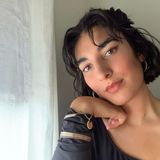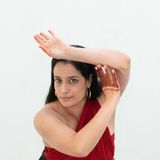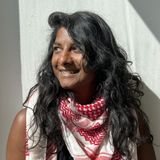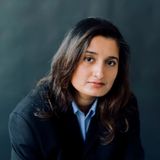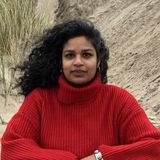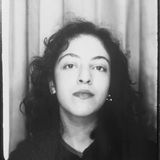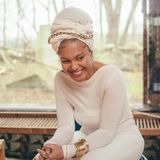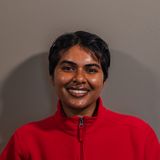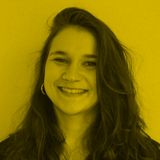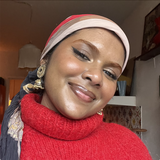“Because I am woman, because I am Black, because I am lesbian, because I am myself — a Black woman warrior poet doing my work — come to ask you, are you doing yours?” – Audre Lorde, The Transformation of Silence into Language and Action
On the 18th of February, we celebrate Audre Lorde’s birthday! As the Black Lesbian Feminist Warrior Poet Mother has been an ancestor for 32 years, we come together to live in her rich legacy. In her honor, we remind ourselves of “our work” today and share tools with each other on how we can remain in practice of the revolutionary ideas Lorde put down in her day.
Please note: This event is BIPOC–women, –femme, –trans, –non-binary & –queer centred. We kindly urge those who do not fall within this demographic to be mindful and respectful of the space they take up.
About the programme
While the impact of Lorde’s work on feminist movement is irrefutable; our understanding of feminism often remains limited to a politics of inclusion within systems (rather than dismantling oppressive systems entirely). The struggle for a feminism that does not rely on the master’s tools—the way white feminism does—is not new. ‘Zwarte vrouwen’ in the Netherlands have been reclaiming feminism since the 80s. This event rests on the shoulders of those feminists, as we continue weaving their threads towards liberation for all of us—whose struggles & freedom always been connected.
“I am not free while any woman is unfree, even when her shackles are very different from my own. And I am not free as long as one person of colour remains chained. Nor is any one of you.” – Audre Lorde, “Uses of Anger: Women Responding to Racism”
Inspired by her essay Uses of the Erotic: The Erotic as Power, we spend this evening expanding beyond intersectionality and become in practice of a decolonial feminism with the soma (body/land) as the site of our liberation. Where through surrendering the master’s tools, we might begin to return to our whole selves as we become -love- embodied again.
“In order to perpetuate itself, every oppression must corrupt or distort those various sources of power within the culture of the oppressed that can provide energy for change.” — Audre Lorde, Uses of the Erotic: The Erotic As Power
Join us on Lorde’s birthday—with a bookshop provided by thebasebookspace; a ritual of re-connection with Henna & Anima Jhagroe-Ruissen (CTRL+ALT+IDENTITY/ECOLOGY); a panel discussion with Tamara Hartman (Archival Textures), Dr. Zuleika Bibi Sheik, Anima Jhagroe-Ruissen, Devika Chotoe & Sheila Chitanie (KABRA); bites provided by Het Rode Keukentje with opportunity to donate to Khartoum Aid Kitchen; poetry by Lelie Danesh; and a guided surrender with Pamela Schaap (MAWU).
About the speakers, healers and artist
Tamara Hartman
Tamara Hartman (she/her) is a writer, journalist and editor, living in India and the Netherlands. She has written various articles for amongst others OneWorld.nl and Lilith Mag, is a co-editor for the book Tuning in: Darimana? and writer of the introductory essay for the book Republishing: Umoja Zwarte Vrouwenkrant (both Archival Textures, 2024). She is currently co-writing a non-fiction book with Madhavi Jeane on contemporary customs, behaviours and patterns within the Hindustani community in the Netherlands, and their preceding colonial history (forthcoming 2026). Her interest lies in the underexposed, forgotten or undocumented stories – often addressing intersecting systems of oppression: from marginalized stories within Indo-Caribbean history and Black feminism in the Netherlands to Dutch Deaf history. From identity to collective oblivion. Throughout her work and research, she continuously poses the question: What does it mean for our collective cultural memory, our self-image, when certain discourses are not written down in our history books?
Anima Jhagroe-Ruissen
Anima Jhagroe-Ruissen identifies as a Social Artivist (combination of art and activism). Through Dance and Henna, she challenges dominant narratives and explores alternative worlds that go beyond resistance. She is guided by the lessons that Henna/Mehndi teaches her, and the rhythms that live in our bodies. She is also the initiator of collectives CTRL+ALT+IDENTITY and CTRL+ALT+ECOLOGY. Both collectives fight for a radical eco-socio just world through decolonial ways of working and art.
“In my artistic praxis, I explore imaginaries of our bodies, material environments, and social realities beyond capitalism and colonialism. We dive into other worlds and cosmologies to experience other ways of knowing and being. At the same time we have no choice but to relate to dominant white aesthetics and other forms of oppression. How can we liberate ourselves through henna and dance and what do our bodies and henna teach us?”
Dr. Zuleika Bibi Sheik
Dr. Zuleika Bibi Sheik is a South African poet and scholar of South Indian indentured descent. She is currently Assistant Professor of Decolonial Approaches, Gender and Black Studies at Utrecht University in the Netherlands. Her particular interest is in ‘decolonising methodologies’, considering the ‘how’ of doing research that is non-extractive, life-affirming and aimed towards social justice and collective liberation. Sheik was awarded her PhD cum laude, for her thesis, Liminagraphy: Lessons in Life-affirming Research Practices for Collective Liberation. Her academic series of essays on Decolonising the Self has featured in the journal Education as Change and Imbiza Journal for African Writing. Her latest poem ‘Senzenina, what have we done?’ is featured on ‘Planting the seeds of Collective Liberation’ (2024) the inaugural issue of OneStateCollective that brings together creatives and activists united for a Free Palestine.
Devika Chotoe
Devika Chotoe (1992) (she/her) is a theatre maker, playwright, poet and film journalist. Her trajectory across different disciplines (dance, spoken word, research, visual arts, theatre and film) resulted in a hybrid practice where she fully embraces the cross-pollination of different disciplines within her artistic practice.
Making heartfelt work is her biggest aim. Next to that, Chotoe oftentimes wonders how art can contribute to societal change and to the bridging of different worldviews. Since the personal is always political, working with autofiction and with cultural references that relate to her Indo-Surinamese and queer identity, is a way for Chotoe to question, subvert (and hopefully) change dominant paradigms.
Chotoe graduated from the School for New Dance Development (AHK) in 2022 and furthermore also writes about film for de Volkskrant and Filmkrant.
Sheila Chitanie
Sheila Chitanie (she/her) is a cisgender woman, who was born and raised in The Netherlands by an Afro-Surinamese mother and an Indo-Caribbean father. She has been working as a shiatsu therapist since 2018. Shiatsu is a therapeutic form of bodywork from Japan. For her shiatsu studies, she dived into embodiment for racialised and marginalised identities. During her journey of becoming a bodyworker the idea for a BIPOC women’s health center arose. She envisioned a space in which we can work on our liberation from oppressive systems through bodywork, mental health care and spirituality. After learning and evolving the target group was expanded to non-cis and femme people and women of color. In 2021 KABRA was founded. At KABRA you’ll find practitioners who have lived experiences when it comes to exclusion based on (e.g.) their skin colour, gender identity and sexual orientation.
Pamela Schaap
Pamela Schaap is a Ghanaian-Dutch theater maker and holistic healer with a deep passion for personal and collective transformation. As the founder of MAWU, she combines disciplines such as dance, theater, creative writing, mindfulness, yoga, and ancestral rituals to transform personal stories into impactful art. Inspired by her spiritual connection with her ancestors – her purest source of guidance – Pamela brings healing and art together. Her project, Seven Sacred Sundays, an art retreat specifically for women of color, has profoundly transformed lives and demonstrates how art can be a powerful tool for healing.
In addition to group projects, Pamela offers 1-on-1 healing sessions and creates performances that invite audiences to reflect, connect, and embark on a journey of spiritual growth. Guided by the ubuntu principle – “I am, because we are” – she seeks to connect people with themselves and the world around them, grounded in the belief that we are all part of a collective consciousness.
Lelie Danesh
Lelie Danesh is an Iranian-Dutch experimental filmmaker, writer and spoken word artist based in Rotterdam. Her work researches chaos, estrangement and tries to find new boundaries within art. She has performed on multiple platforms, such as Mensen Zeggen Dingen and Poetry International Festival.
tamira devi
tamira were raised in complicity with genocidal systems and are now seeking to interrupt that socialisation. tamira, whose body holds the lands of India, to the plantations and mango trees in Suriname and the bricks and concrete in the Netherlands are currently navigating what it means to belong and survive, in a country that constantly seeks to Other and dehumanise them.
Through their programming at Pakhuis de Zwijger they aim to incorporate the theory from university and somatic and spiritual treasures burried in her body, to work toward transformation of the personal and political.

The publication series Archival Textures seeks knowledges that are continuously obscured by normative perspectives on our bodies, desires, forms of cohabitation and expression. This entails critically tending to the site of the “archive,” as many institutional collections reinforce these normative perspectives and understand knowledge as something which can be classified, authorized, and recorded into a single intellectual framework. With Archival Textures, we draw from unlikely holdings of established archives and turn to local community archives, personal collections, and conversations to find writings of the past that can inform our current vocabularies of resistance and solidarity. By way of (re)assembling, translating, transcribing, annotating, and supplementing archival texts, the publications weave a poetic texture of knowledges, situating them within a transnational and intergenerational fabric of belonging. Each book is edited with a subversive strategy in mind, and is a testament to affective, collaborative practices and modes of research, building on queer, Black feminist thought.
A network of researchers, artists, designers, translators, poets, archivists and activists (most of whom have hyphenated roles and practices) has worked on the first season of five books since early 2023, when Archival Textures was founded by Tabea Nixdorff in Arnhem, the Netherlands. In that sense, Archival Textures operates as an artist-initiated project, an intergenerational network, and a publisher.

The Little Red Kitchen is a food and mutual aid collective working from the belief that cooking is political. They provide free or low-cost meals, host solidarity diners, and raise funds for important causes. By using food to support their community and bringing people together, they aim to be a center of care for those with revolutionary spirits.

CTRL+ALT+ is the umbrella network that supports the collectives CTRL+ALT+IDENTITY, CTRL+ALT+ECOLOGY.
CTRL+ALT+IDENTITY explores the complex position of Women of Color in the netherlands. This position is often undervalued, because of the dominant white perspective about ‘universal values’. A perspective that mainly centers the strength of the individual and causes a color blindness. Not recognizing the diversity of differences enhances structural problems such as racism, sexism, validism and classism. In fact, it leads to dehumanization. Guiding questions within our collective are: How can we reclaim our humanity, make stories visible and create loving worlds with each other that go beyond resistance?
CTRL+ALT+ECOLOGY explores issues about re-relating to this part of Earth (North-West European territory), forms of reciprocity with Earth, and how to process these activities and questions in our daily lives. What unethical choices are we forced to make? What other forms of life with Earth do we still carry within us from pre-colonial times? Important themes we explore are health, sustainability, agriculture, nutrition and spirituality.

KABRA is a studio dedicated to elevating the quality of life of politicized identities. We center independnt BIPOC practitioners who offer services and activities sensitive to aspects of oppression that affect the health and well-being of politicized identities. But we encourage non-BIPOC practitioners who agree with our mission to join us to help as many people as possible, as these spaces are scarce in The Netherlands.
By existing we contribute to a better understanding of the ways in which politics and care are intimately intertwined and in what ways mental health practices need to consider the power structures that we live in in order to be effective. Moreover, we hope to contribute to an expansion of the understanding of care beyond the eurocentric conceptualization that currently prevails in The Netherlands and also starts to include spirituality and community care.

The Base Bookspace is a Rotterdam based nomadic bookshop. It originated from a lifelong love for the written word. The focus is on books by Black authors. Every month five books are added to the collection with a focus on recently published works by young authors. Based in the Netherlands, The Base is looking to offer a platform to upcoming Afro-Dutch writers as well as promoting other Afro-diaspora and African writers. The Base Bookspace is a homebase for the whole community, including LGBTQ+ authors and readers.

The War in Sudan has created the World’s largest Humanitarian crisis. According to the World Food Programme 19 million people are facing extreme levels of hunger and very little international humanitarian aid is reaching the country. In Response to this tragic situation in our native country, we have setup the Khartoum Aid Kitchen initiative to feed the hungry in the greater Khartoum area. Our first Kitchen in Al Hitana Omdurman has been a success. Alleviating hunger in the area by feeding 1,250 of the most needy people daily. The fortified stew we provide with bread is not only intended to provide sustenance but to also be nutritionally balanced. Since our kitchen in Al Hitana opened we have proceeded to rapidly setup new kitchens across the Khartoum State area. With the hope of being able to feed as many hungry people as possible. We currently directly run 12 fully fledged Kitchens as well as 5 partner kitchens which we support by covering their rice needs. We intend to continue establishing new kitchens in the Khartoum area to feed the hungriest, but in order to do this we kindly ask for your generous donations.

